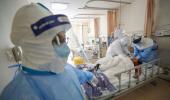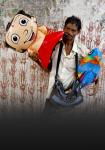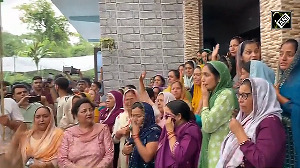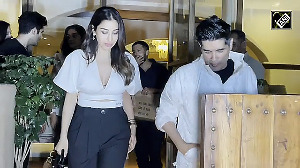'From India to Indiana, there has always been a sense of hope, optimism, and goodness.'
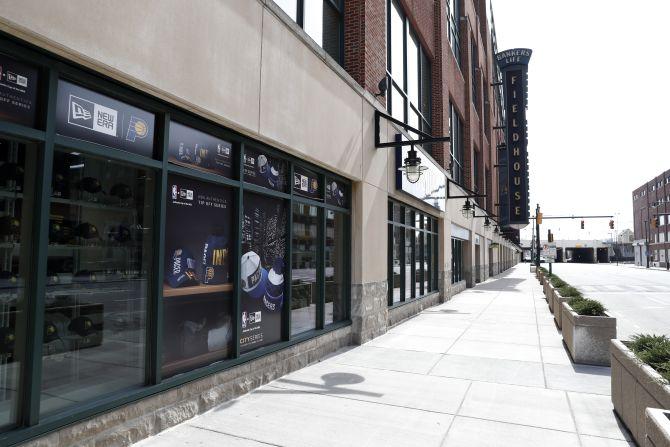
People of Indian Origin and NRIs describe the impact coronavirus is having on their lives.
Part 1 in the series: 'Our world is coming to a complete standstill'
Part 2 in the series: 'Indian Americans collected 6 months of groceries'
Part 3 in the series: 'Coronavirus: 'These are strange times'
Part 4 in the series: 'This virus has taken over the world'
Part 5 in the series: 'The virus has always felt at arm's length from me'
Part 6 in the series: 'We are now the eye of the storm'
Part 7 in the series: 'As a healthcare worker I feel the continuous gratitude of people'
Part 8 in the series: Coronavirus: 'Normal may never come back'
Dr Jagdish Khubchandani, Muncie, Indiana
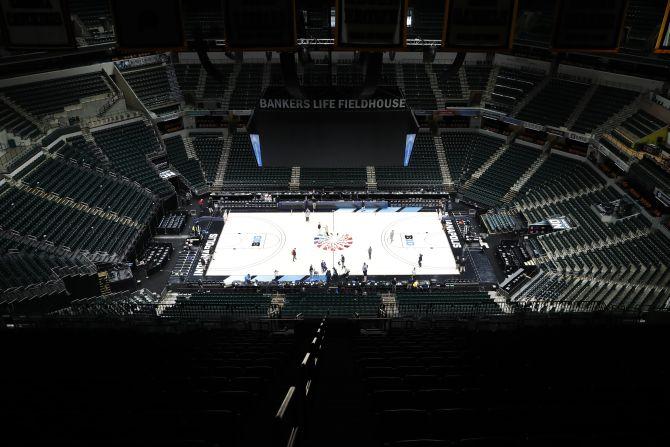
The world that I knew, till last month, has changed.
Almost like we are having a bad dream.
I have lived in India till my teenage years, and for more than a decade now, in the United States.
There is so much in these two democracies that is similar -- the culture, the color, and the vibrant life that characterises the societies across these two nations.
From India to Indiana, there has always been a sense of hope, optimism, and goodness.
And now, in my birth place of Rajasthan and my current hometown in Indiana, the COVID-19 pandemic has robbed love from hearts, happiness from souls, and life from bodies.
The streets are empty. There are material shortages. Freedom has been curtailed. People are in fear. Minds are clouded. And life has come to a standstill.
All the classes I teach have been moved online.
I still remember how a student came to me, after the last lecture I delivered, at Ball State University, where I am a professor of public health, and said "I will miss you."
I never thought of myself carrying so much importance in anyone's life.
The reality is, we are all social by creation and nature; the student verbalised what we all are doing now -- missing the life and hope around us.
Nothing can pacify us except time. From denial to acceptance, a new reality is almost forcing its way into our lives.
So far, I have been busy trying to answer questions on the disease and trying to intellectualise various public health scenarios.
But, a friend, who is not a health scientist, asked me recently, "Where are we going with this pandemic?"
Basically, amongst the public, at this moment, we have some optimistic views, causing carelessness.
And pessimistic views causing unwarranted anxieties. Even in the long run, these two approaches won't yield much good for our societies.
I could not lie and be too optimistic and didn't want to be a pessimist.
So, I took a possibilistic view.
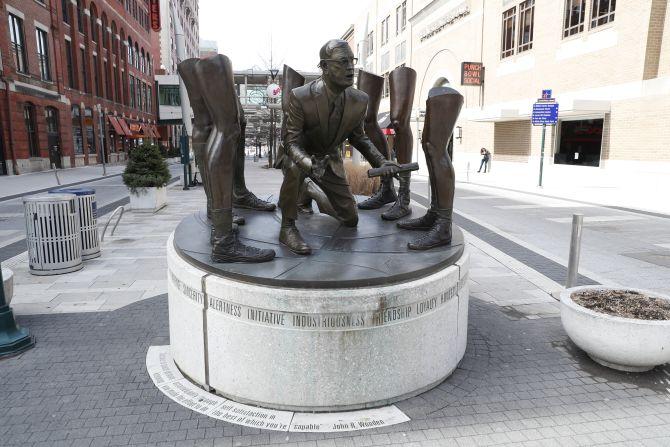
A possibilistic view of what is ahead of us -- ie interested in possibility or impossibility of certain situations in the future.
What we can achieve or continue to lose, truly depends on us.
Here are some things for us and our leaders to consider:
1. In general, we are physically close to others, but often, emotionally and socially distanced.
Given the challenge that we have today, many communities have shown magnanimous examples of high social capital, connectedness, and resourcefulness.
If communities continue on this path, our duration of recovery from the blows of this pandemic, and any future disasters, will be shorter.
Can we sustain the momentum of cohesion and resilience?

2. Till date, we understood disaster and pandemic preparedness as a static concept (prepared or unprepared).
I believe, we are 'never prepared enough' and we are 'never totally unprepared', we are mostly 'underprepared'.
We need a dynamic view of preparedness, where professionals, systems, and policies are proactive and not reactive.
From real-time lenses to futuristic lenses, the foresight will ensure that we minimise our losses.
Can we prevent the next disaster? Or foresee the next pandemic and start preparing?
3. A significant population in the world is young with school- and college- aged youth. Parents, students, and educators have been asked to teach and learn online overnight.
Sulk or learn, but that is the future of education.
We need educators to be more tech savvy and teach tangible skills. If technology is such an integral part of our life today, why not make learning a lifestyle? Edutainment -- anytime, anywhere!
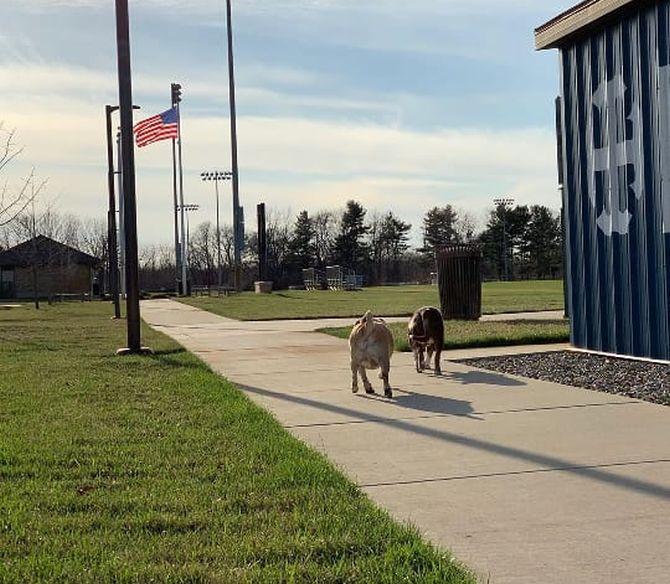
4. Our biggest concern in relation to the current pandemic is healthcare. And, it should be.
Not only during pandemics, but every day.
Two major issues here.
First, we often look at healthcare from the lense of access, cost, and quality, with little resources and emphasis for prevention.
Second, we confuse healthcare with health.
The countries that spend the most on healthcare are not the healthiest and happiest.
Why?
We need to create a culture of prevention, health, and wellness in the society. And, it can be done. Hand washing saved us from pandemics in the past, and that still holds true!
5. While discussing healthcare, this pandemic should spur a variety of innovations and interventions on how to make people healthier and provide healthcare services far and wide.
How about a pocket device to diagnose infectious diseases of many different types?
Apps for better screening and testing?

6. Economic recovery from the current pandemic can be painful.
But across various fields and occupations, we have the chance to nurture more innovators and entrepreneurs, wealth and job creators, workspaces and occupations, entertainment modes and technological advancements, disruptive innovations, and public-private partnerships.
How about new jobs in risk assessment and disaster preparedness?
There is an opportunity for bold reforms now. Specifically, reforms with legislation, regulations, and judiciary as it relates to food and beverage industry, pharmaceutical and medical device companies, law and order, sustainable communities and responsible consumption, agriculture and livestock, infrastructure and transportation, media and Net neutrality; education, economy, and healthcare.
In addition to these individual and community level opportunities and given that coronavirus pandemic left no country and continent unaffected, global leaders have an opportunity to strengthen partnerships to create a better world.
All country heads should now try and accelerate the processes for meeting our collective goals that we agreed upon in 2015, and achieve them before time.
The human race has enormous resilience. I took a possibilistic view. Time will tell if we capitalised on our opportunities.
Or squandered them again.
Dear Reader:
Are you someone of Indian origin living through these challenging times abroad?
We would like to hear how you are coping and what's happening outside your window.
How it has been for you emotionally and practically?
We would like to have your observations and perspectives.
Please share your responses with us and we will publish your account right here on Rediff.com.
Do write to us at news@rediff.co.in (Subject: Living abroad through COVID-19) along with your NAME, AGE and LOCATION.
Please don't forget to share a photograph of yourself and any significant pictures or videos you have taken of the area where you live. You are welcome to send your account on video too!
